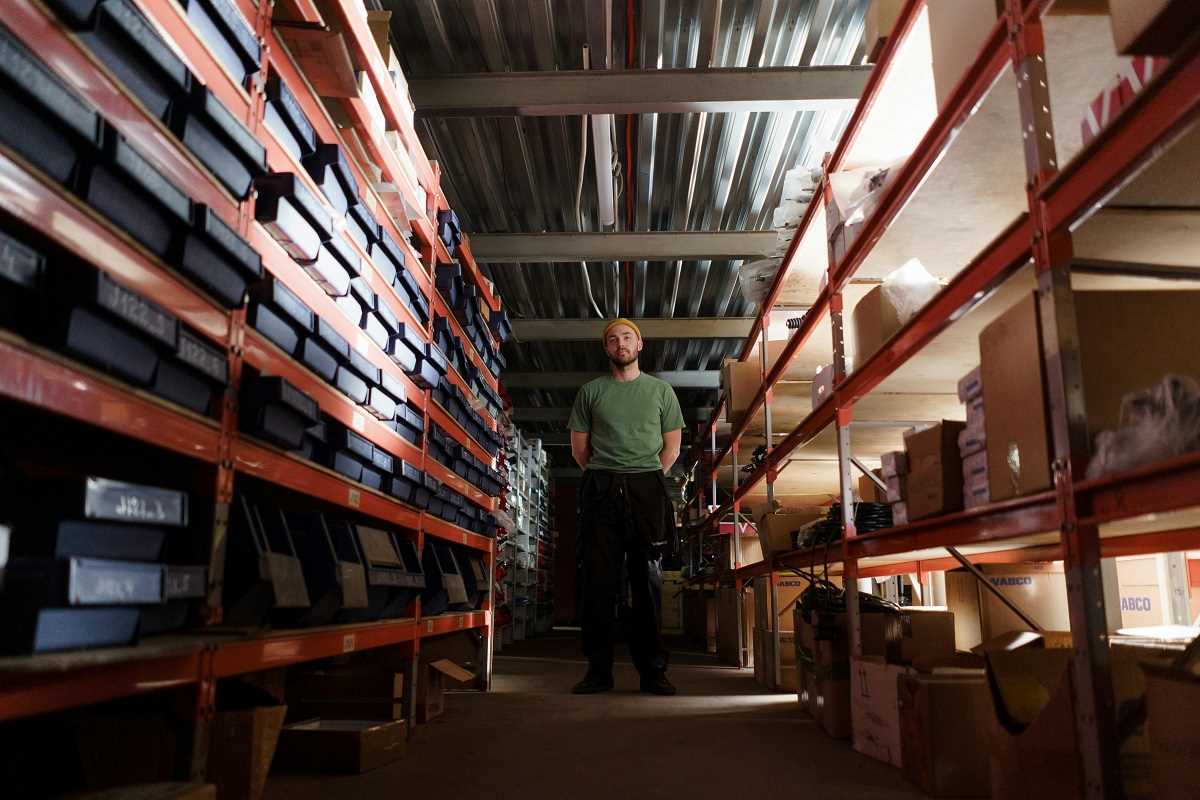Sustainability is no longer just a buzzword—it’s become a critical part of how businesses operate today. Companies are realizing that their supply chains have a huge impact on the environment, society, and their own long-term success. While large corporations have been able to invest heavily in sustainable practices and advanced tracking systems, small-to-mid-sized companies are often left wondering, “How can we realistically go green without breaking the bank?”
That’s where a SaaS (Software as a Service) product for sustainable supply chain tracking comes in. It’s the ultimate tool to help small- and mid-sized businesses level the playing field, offering them the same visibility and power to build better, cleaner supply chains without blowing their budgets.
Let’s take a deeper look at why sustainability in supply chains matters, the challenges smaller companies face, and how a SaaS solution is changing the game.
Why Sustainability in Supply Chains Matters
The supply chain is the backbone of every business—it’s how goods get made, transported, and delivered to customers. But it’s also where many of the environmental and social problems occur, from carbon emissions during transportation to unethical labor practices in factories.
For businesses, ignoring these issues isn’t an option anymore. Governments are tightening regulations, consumers expect brands to do the right thing, and investors are more likely than ever to put their money behind companies with strong environmental, social, and governance (ESG) practices.
Building a sustainable supply chain isn’t just the “right” thing to do—it’s smart business. Companies that adopt sustainable practices often see:
- Improved brand reputation and customer loyalty.
- Long-term cost savings from reducing waste and improving efficiency.
- Easier compliance with environmental and social regulations.
But for smaller companies, understanding their supply chain’s impact and managing sustainability metrics can feel like solving a giant, never-ending puzzle. That’s where technology steps in to save the day.
Challenges Small-to-Mid-Sized Companies Face
Smaller companies often have fewer resources to dedicate to sustainability programs. Unlike their larger competitors, they may struggle with:
- Limited visibility into their supply chain activities. Smaller businesses may rely on third-party suppliers, and getting complete transparency about where materials come from or how labor is handled can be difficult.
- Complex compliance issues. Environmental, labor, and trade regulations vary across regions, and keeping up with these requirements is overwhelming without dedicated tools or teams.
- Data collection difficulties. Gathering accurate data about supply chain practices is often time-consuming and expensive, especially for companies still using spreadsheets or outdated manual processes.
- Budget constraints. While they may want to invest in sustainable practices, these companies simply can’t afford to hire entire teams or buy custom software like larger corporations can.
These challenges make it tough for small-to-mid-sized businesses to take meaningful steps forward, even if they’re committed to sustainability. But SaaS tools are designed to bridge that gap.
How a Sustainable Supply Chain SaaS Product Can Help
A SaaS product for sustainable supply chain tracking provides small-to-mid-sized businesses with a cloud-based solution to monitor, analyze, and improve their supply chains. Here’s why this is such a game-changer:
Affordable and Scalable
Unlike traditional software that requires upfront costs for installation, a SaaS model works on a subscription basis. Companies can pay for only what they need, making it accessible even for businesses with tight budgets. Plus, as the company grows, the software can scale up to handle larger and more complex supply chains.
Real-Time Visibility
One of the biggest advantages of these tools is the ability to access real-time data. A SaaS solution can pull information from suppliers, logistics companies, and other partners to provide a constantly updated picture of what’s happening in the supply chain. This means businesses can identify inefficiencies, emissions hotspots, or social risks before they spiral out of control.
Automated Compliance Tracking
Staying compliant with environmental and labor laws can be an administrative nightmare, especially for companies operating in multiple locations. A good SaaS product simplifies this by automatically checking supply chain activities against legal requirements and industry standards. Alerts and reports are generated when something goes off track, helping businesses avoid penalties and reputational damage.
User-Friendly Design
Small-to-mid-sized companies don’t always have tech-savvy teams, so user experience matters. The best SaaS tools are intuitive and easy to use, meaning staff can adopt them without a steep learning curve. Dashboards and visualizations make sustainability metrics accessible to everyone, from the CEO to the warehouse supervisor.
Customizable Reporting
Investors, customers, and regulators are all asking questions about sustainability—and they all want to see reports. A SaaS platform takes care of the heavy lifting here by automatically generating detailed, meaningful reports about a company’s sustainability practices, from carbon emissions to supplier ethics.
Key Features of a Robust SaaS Product
When developing or choosing a SaaS product for supply chain tracking, here are some of the must-have features businesses should look for:
- Real-Time Analytics to collect data on materials, emissions, and labor practices across the chain.
- Integration Capabilities to connect with existing ERP systems, accounting software, and logistics platforms.
- Supplier Evaluation Tools to rate suppliers on their sustainability practices and identify red flags.
- Carbon Footprint Calculators for measuring and reducing emissions throughout the supply chain.
- Risk Management Dashboards to identify potential risks like regulatory violations or unethical practices early.
- Custom Reporting Tools for easy communication with stakeholders.
The Future of Sustainable Supply Chains
SaaS is just the beginning—technology is poised to revolutionize how companies track and improve sustainability in supply chains. Innovations like blockchain will drive even greater transparency, while AI-powered predictive analytics will make it easier to optimize supply chains for both efficiency and impact.
For small-to-mid-sized companies, the next few years will hold immense opportunities. With access to affordable tools like SaaS platforms, these businesses can finally close the gap between their desire to go green and their operational challenges. The result? Supply chains that are not only sustainable but more agile and competitive in a fast-changing, impact-driven market.
 (Image via
(Image via





